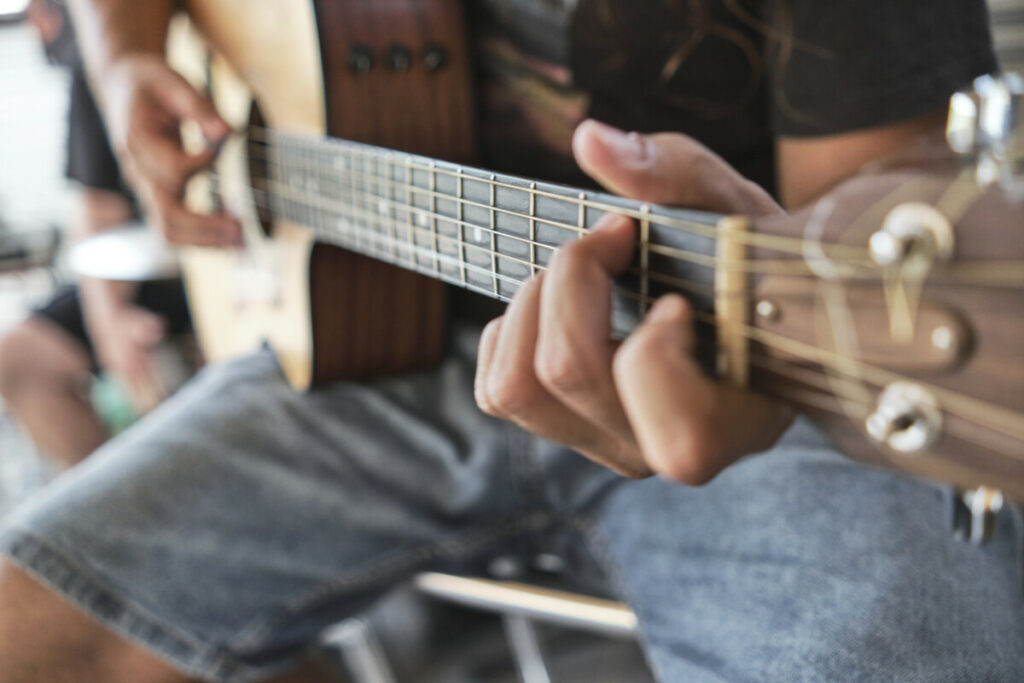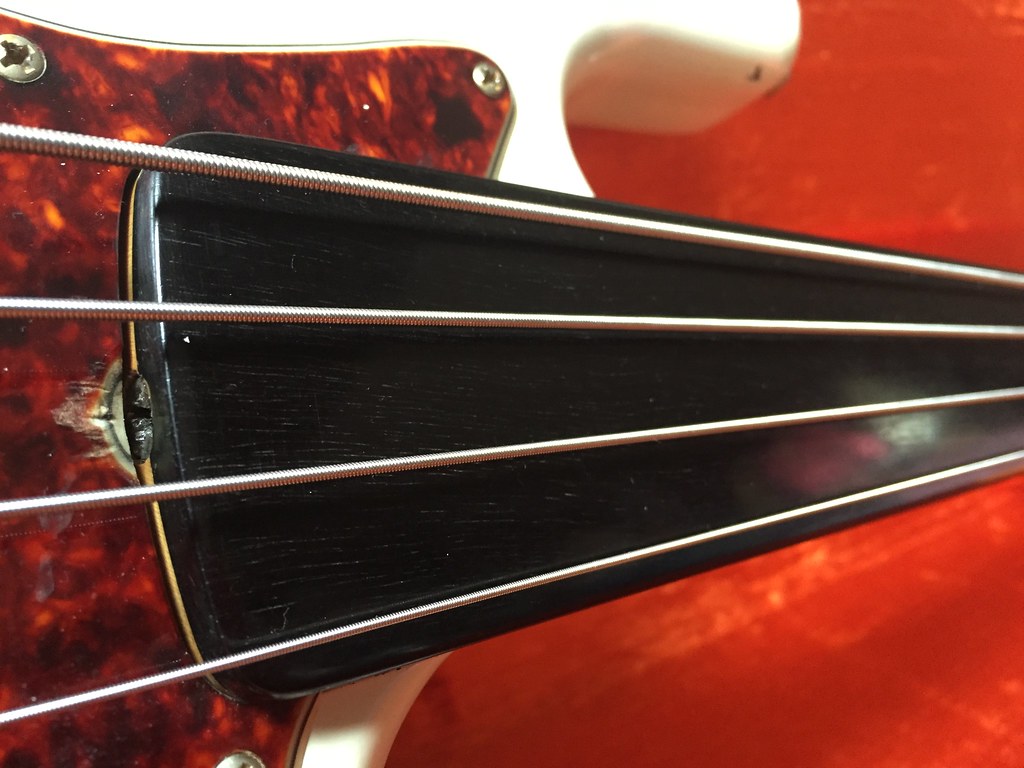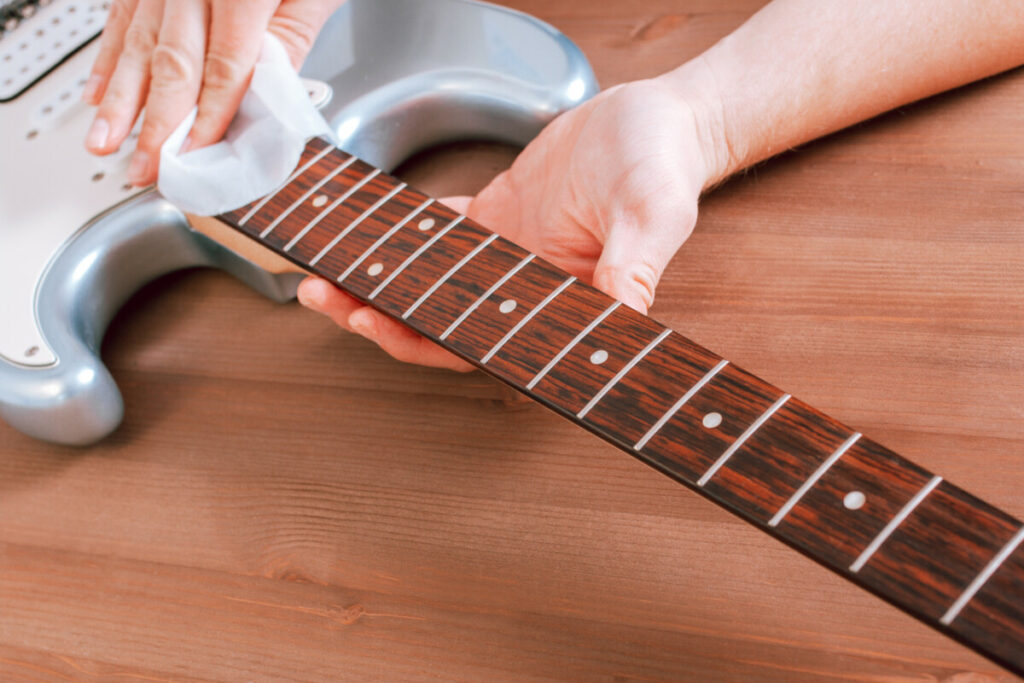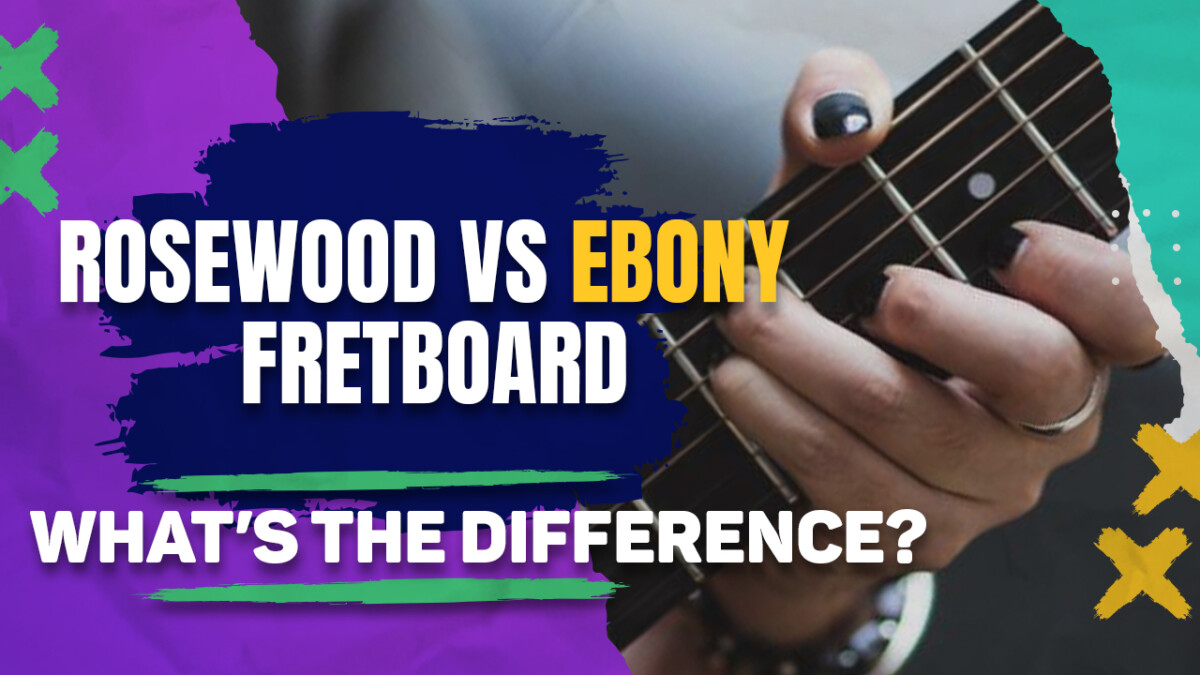So, you’re thinking about leveling up your guitar with a new fretboard? Right on! The two top contenders are definitely Rosewood and Ebony. Each brings its own set of perks and drawbacks to the table.
Equipping yourself with insights can steer you toward making a dope decision for your six-string companion. Let’s dive into comparing these two bad boys – rosewood versus ebony fretboards, their strengths and weaknesses, plus some handy tips to guide you in picking out the perfect fit. Ready? Let’s rock this!
Table of Contents
Advantages of Rosewood Fretboards

Rosewood fretboards are your ticket to fantastic, mellow guitar sounds. Known for their durability and silky-smooth texture, they’re an ideal choice when it comes to crafting the perfect guitar. Do you know how to clean a rosewood fretboard? It’s quite an easy process if you follow the right steps.
Nonetheless, when you play on a rosewood fretboard, you’ll notice how effortless string bending and vibrato become. Its sound is richer and more soulful compared with its ebony counterparts- giving blues and jazz musicians something extra special in their performances.
What sets Rosewood apart? It’s all about balance – while ebony can deliver a brighter tone that pierces through the mix, rosewood mellows things down beautifully without sacrificing presence or character. So whether you’re strumming along to folk tunes or shredding some heavy metal riffs, this versatile material will always hit the right notes!
Disadvantages of Rosewood Fretboards
The heftiness of rosewood fretboards is a significant downside compared to other options. This extra weight can make the guitar feel lopsided and more challenging to handle, affecting playability. Moreover, this increased mass directly impacts the guitar’s tonal quality—it could potentially restrict its sound range and volume.
Besides that, several players have noticed that guitars with rosewood fretboards tend to buzz more than their counterparts—this unwanted noise can be quite annoying. On top of it all, these types of fretboards house natural oils that contribute to altering the tone over time—a factor not really appreciated by some musicians as they prefer consistency in their instrument’s output.
Advantages of Ebony Fretboards

Ebony fretboards can seriously up your guitar game. They offer a whole range of perks such as crisper sound, smoother string action, and extended note sustain. If you’re looking to bring out the best in your music, an ebony fretboard could be just what you need. Also, cleaning an ebony fretboard is quite easy, which is a huge plus.
Check out these awesome benefits of using an ebony fretboard:
- Glide-friendly surface – Thanks to its silky smooth texture, there’s less friction between strings and board on an ebony one. This means more accurate notes for your jam sessions.
- Richer tones – If you dig deep undertones in your tunes, this is the way to go! The dark tonal quality given by these boards is perfect for those who love their music with some extra depth.
- Extended note hold – With its denser makeup compared to other woods used in guitars like maple or rosewood, playing on an ebony board can give longer sustain along with clearer sound output.
- Brightened tone – Looking for some complexity? An upgrade from regular boards can result in brighter sounds adding layers upon layers of richness into every strummed chord or picked note.
Disadvantages of Ebony Fretboards
Ebony fretboards may be a hit due to their dark hue and rich tone, but they also have some drawbacks worth considering. First off, ebony is significantly harder and more brittle compared to its counterpart – rosewood. This makes it prone to damage like cracks or chips and trickier when it comes down to repairs.
Plus, let’s not forget that ebony isn’t exactly easy on the pocket either. It’s rarer than other materials used for making fretboards which jacks up its price tag quite a bit in comparison with rosewood.
Choosing the Right Fretboard Material

The choice of fretboard material can make or break your guitar experience, and it’s not something you want to take lightly. Here are four major pointers aimed at helping you navigate this decision like a pro:
- Factor in the environmental impact – If sustainability is part of your mantra, then Rosewood should be on top of your list as it’s more eco-friendly than Ebony.
- Take note of sound quality – Remember, different materials give off varied acoustics; for instance, ebony being denser results in more vibrant sounds compared to others.
- Prioritize comfort – The texture matters! Rosewood’s softer nature makes sliding those fingers across the strings feel effortless.
- Don’t forget style – Aesthetics matter too! For that chic black finish look that screams sophistication, nothing beats an Ebony fretboard.
Frequently Asked Questions
How Do the Different Fretboard Materials Affect the Sound of the Guitar?
The materials used to craft your guitar’s fretboard can drastically change the instrument’s sound. Rosewood and ebony, for instance, each give off unique tones ranging from bright to warm. So choose carefully if you want a specific vibe.
How Long Does Each Fretboard Material Last?
No need to be Mozart here! Factors like string gauge, bridge type and fret size all play into how long your fretboards last. But relax – rosewood or ebony are both tough as nails and will keep rocking provided they’re well cared for!
Are There Any Environmental Implications to Using One Fretboard Material Over the Other?
When choosing your material consider more than just tone; sustainability matters too! Both rosewood and ebony come straight from Mother Earth so using them responsibly is crucial. Keep this in mind when picking out your next six-string companion!
What Is the Cost Difference Between Rosewood and Ebony Fretboards?
Tone quality isn’t free – there’s a price difference between these two popular choices of wood, with rosewood typically costing more than its counterpart – ebony. Consider this investment wisely because it’ll define every note you strum.
Are There Any Other Fretboard Materials Available?
There are plenty of other options besides just sticking with our old pals Rosey & Ebs (rosewood & ebony). Maple or Pau Ferro could hit that sweet spot for you instead! Each has its own pros/cons list waiting to be explored before making an informed choice.
Conclusion
Wrapping up, nailing the perfect fretboard material for your guitar can be a bit of a head-scratcher. Rosewood and Ebony are both solid contenders with their own set of pros and cons.
At the end of the day, it boils down to what floats your boat in terms of sound. What kind of vibes do you want to resonate from your guitar?
Are you all about that crisp, dynamic twang? Or more into rich and soothing melodies?
Ponder on these points – they’ll guide you toward discovering just the right fretboard material tailored to suit your style.

